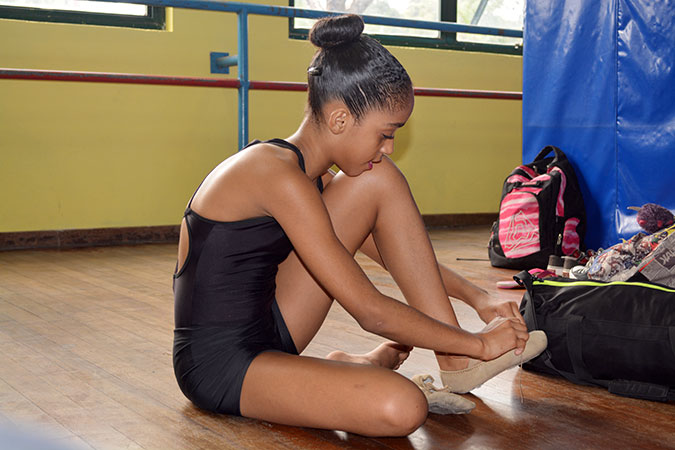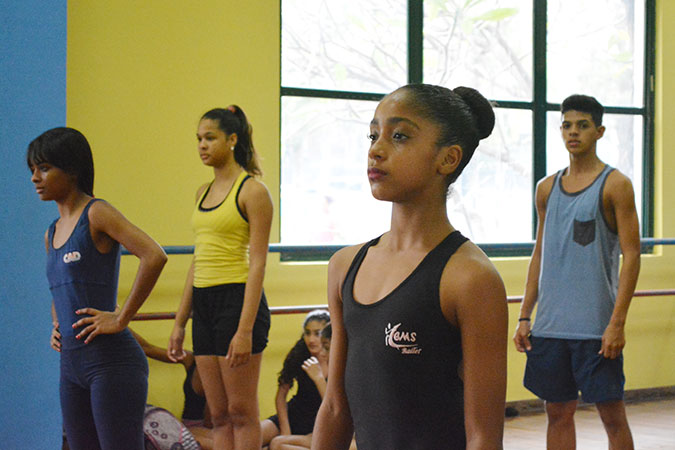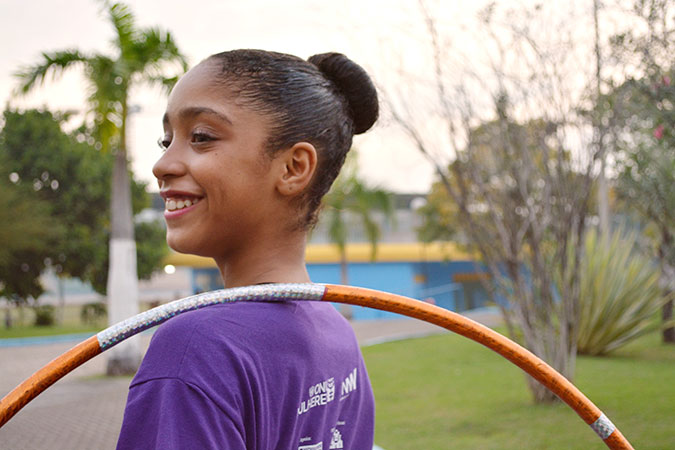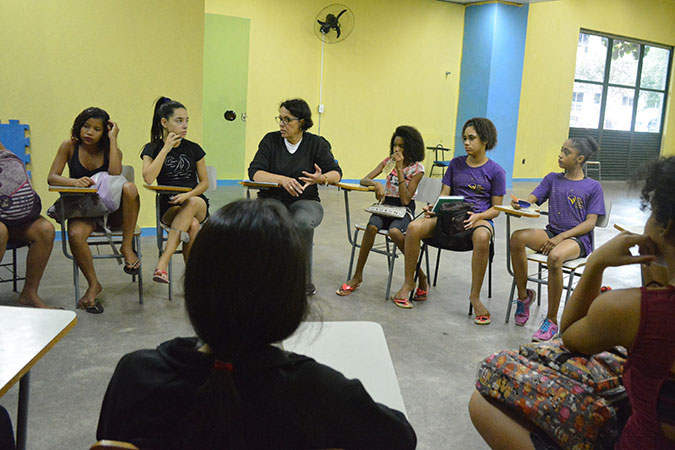
“I’ve learned from sport that we have to make efforts to succeed. We get nowhere if we stay at the same place doing nothing,” says Adrielle Alexandre, a 12-year old young athlete from Rio de Janeiro, Brazil.
At least four times a week after school, Adrielle goes to an Olympic Villa—one of 22 public spaces with free sports facilities managed by the municipality—to take ballet, gymnastics and Pilates classes. She is among 400 girls and young women aged 10-14 years, who are part of “One Win Leads to Another”, a joint programme by UN Women and the International Olympic Committee (IOC), in partnership with Women Win, Bola Pra Frente, Instituto Agenda and Brazil’s National Olympic Committee, and supported by the Swedish Postcode Lottery Sport Foundation. Twice a week, after her sport practice, she attends thematic workshops guided by a multidisciplinary team of pedagogues, social workers and psychologists, and learns about leadership and self-esteem, sexual and reproductive health and rights, ending violence against women and girls and how to financially plan for a better future. The programme aims to reach 2,500 girls by early 2017 and is now active in 16 Olympic Villas in Rio de Janeiro.

Nearly 50 per cent of all sexual assaults worldwide are experienced by girls who are 16 or younger. As girls reach puberty, they experience more marginalization and sexualization. Their self-esteem drops twice as much as in boys and their body image is driven by negative stereotypes. During adolescence, 49 per cent of girls give up sport—a proportion that is six times higher than among boys.
The “One Win Leads to Another” programme uses sport as a powerful means to reduce gender inequalities and to give girls tools to build life skills and self-esteem. The programme also creates safe spaces for girls—a crucial first step to engaging them positively. “Sport helps to improve girls’ self-esteem, their team work skills and teaches them to have goals in life. These things, combined with safe spaces, encourage them to aspire and develop,” says Nadine Gasman, UN Women Representative in Brazil.

Charismatic and talented in rhythmic gymnastics, Adrielle draws attention wherever she goes. She was chosen to carry the Olympic Torch during the relay this year. Myriam Fernandes, Adrielle’s grandmother, is one of her greatest fans. “We sacrifice a lot to keep her going. Practicing sports in Brazil as a profession is not an easy path, especially for poor people. Everything she does makes us very proud. I’m very thankful for all the opportunities she’s been having,” she beams with pride.
Adrielle appreciates the challenges and sacrifices that she and her family have had to make, to follow her dreams to become an Olympic rhythmic gymnast. “Many times I’ve had to give up toys to save money for gymnastics´ costumes, or to pay fees to participate in festivals and competitions. Sometimes I don’t get to do things that other kids at my age usually do, to keep practicing sports. But that has never made me sad. I have fun and I love sport.”
For Elizabeth Jatobá, one of the facilitators of the programme, “the most important point of the project is giving these girls a safe space where they can be heard. They can express their voice, we help them communicate what they think, what they live and what they want.”

A lesson that Adrielle has learned from the programme, which she says she holds closest to her heart is the meaning of being a winner—in sport and in life. “Being a winner is about making my dreams come true, helping others and changing my community into a place free of violence and full of respect,” she says.

